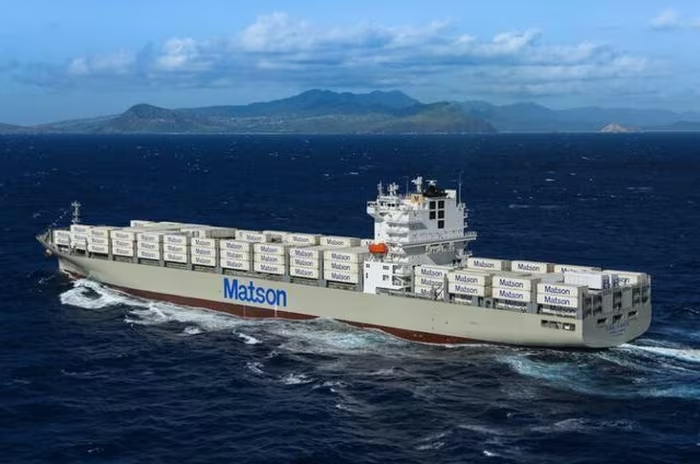Shipping company suddenly stops transporting electric cars across the Pacific, what is the reason?
Posted on: 23/07/2025
Matson, Inc., a leading U.S. ocean carrier in the Pacific , surprised customers this past week when it abruptly announced an “immediate” halt to the carriage of any electric and plug-in hybrid vehicles on its fleet.
“Due to growing concerns about the safety of transporting vehicles powered by large capacity lithium-ion batteries, Matson is temporarily suspending the acceptance of new or used electric and plug-in hybrid vehicles for transport on its vessels,” the company said in a notice to customers.
Matson's decision comes after a number of serious maritime incidents involving lithium battery fires, including the recent sinking of the Morning Midas in the North Pacific in June.
The 182-metre-long ship was carrying 3,159 vehicles, including 65 pure electric vehicles and 681 hybrid vehicles, when smoke was detected coming from the deck of the electric vehicle carrier.
Despite the crew's efforts to deploy emergency firefighting procedures, the intensity of the fire forced all 22 crew members to abandon ship. The ship sank shortly thereafter.
The incident is reminiscent of the Felicity Ace disaster in February 2022, when the car carrier Felicity Ace caught fire in the middle of the Atlantic and eventually sank with nearly 4,000 cars on board. Much speculation has focused on the lithium batteries in electric vehicles as a potential cause.

Matson, Inc. is a leading U.S. ocean carrier in the Pacific Ocean, specializing in the transportation of vehicles between the U.S. mainland and Hawaii, Alaska, and Guam. Photo: Offshore Energy
Marine safety experts point out that thermal runaway is the main danger to lithium-ion batteries.
This is a chain reaction inside a battery cell that is very difficult to stop once it starts. It occurs when the battery enters a state of uncontrolled self-heating, which can result in the release of toxic gases, debris or dust particles along with extremely high temperatures.
The United States Coast Guard (USCG) has issued warnings about the extreme risks involved in loading damaged electric vehicles onto commercial vessels.
In addition to containerships, Matson operates combination container/roll-on/roll-off wheeled vessels in its fleet, serving ports throughout Hawaii, the U.S. mainland, Alaska and Guam.
Matson's electric vehicle suspension is said to be effective "immediately," and the company also said it will continue to ship conventional cars.
The company said it “continues to support industry efforts to develop comprehensive standards and procedures to address the risk of fire and explosion at sea caused by lithium-ion batteries, and plans to resume service when appropriate safety solutions that meet our requirements can be deployed.”
As the global maritime industry grapples with these emerging challenges, regulators in the United States, including the U.S. Pipeline and Hazardous Materials Safety Administration (PHMSA), have issued new guidance on the transportation of lithium batteries, requiring compliance with both domestic regulations and the International Maritime Dangerous Goods (IMDG) Code.